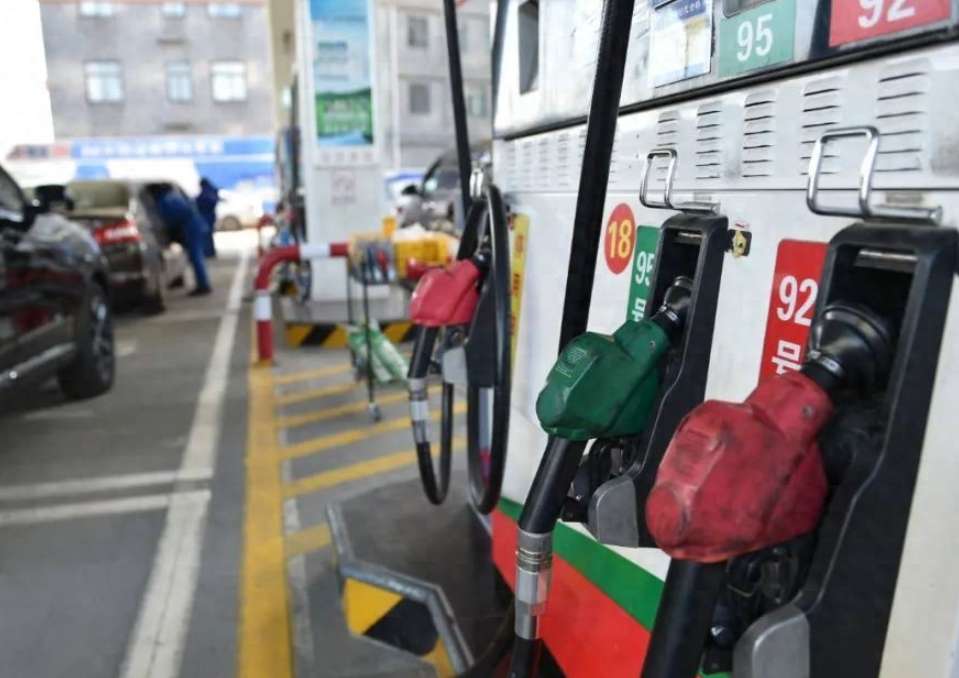Global Oil Prices Fall, Yet China's Remain Unchanged
Advertisements
The rapid development of China's economy has led to an increasing number of residents owning their very first car after years of hard work. As a consequence, the relationship between daily life and automobile ownership has become symbiotic, with fueling increasingly becoming a routine chore for car owners across the nation. However, despite an observed decline in international oil prices, the price of fuel in China has remained notably stable—a phenomenon that raises many questions about underlying factors shaping the local market.
First and foremost, it is essential to recognize that the pricing of gasoline in China does not solely rely on fluctuations in international oil prices. The value of fuel within the Chinese market is influenced by a complex array of factors including production costs, transportation expenses, taxation, and overall market supply and demand dynamics. This intricate web explains why a drop in global oil prices does not straightforwardly translate to reduced domestic fuel costs.
China's status as a manufacturing powerhouse underscores the importance of a stable energy market. As many industries transition to higher-value production, challenges related to competitiveness persist, with some sectors still grappling with lower profit margins. In such a critical phase, having a reliable and stable energy supply is paramount for sustaining industrial growth and development.
On the flip side, erratic oil pricing could undermine the foundations of the manufacturing sector by instilling uncertainty and complicating the operational landscape for businesses. Therefore, the stability of Chinese oil prices is crucial for fostering a conducive environment for industrial advancements and sustained economic progress. A predictable energy pricing structure ultimately facilitates the maintenance of business operations, which, in turn, preserves jobs.

Beyond manufacturing, stable fuel prices have wide-reaching implications for economic development at large. Cars are now indispensable in modern societies, and their prevalence drives urbanization and economic activity. Should fuel prices exhibit volatility, the effects would ripple through the economy, adversely affecting consumer behavior and influencing urban growth trajectories. Hence, the consistent price of fuel not only supports the manufacturing sector, but also acts as a catalyst for broader economic development.
The "black gold" known as oil has historically wielded substantial influence over global economic trends. Its price movements reverberate through industries, affecting everything from consumer goods to job markets. The recent downturn in international crude oil prices has stoked fears about its potential repercussions on businesses, employment, and the global economy. Many consumers and industry experts are left pondering: could persistently low oil prices disrupt the balance in local and international economic ecosystems?
Recognizing the economic nuances, China has adopted a unique policy approach involving both floor prices and ceiling prices to safeguard its domestic oil industry against the unpredictable nature of global oil markets. Specifically, when global prices dip below $40 per barrel, China will import oil at that rate, with the excess proceeds funneled into state coffers. Conversely, if prices soar past $130 per barrel, the government subsidizes enterprises to buffer them against excessive costs. This strategic design encapsulates an effort to maintain stability within the domestic market regardless of global fluctuations.
In instances of significant drops in oil prices, enterprises experience reduced import costs; nonetheless, the established floor price mechanism prevents them from suffering severe profit declines. This approach solidifies a foundation for steady business operations, thereby safeguarding job opportunities within the economy. While such a policy could result in consumer confusion—often leaving many feeling that domestic prices do not decrease in alignment with global trends—its overarching impact supports a healthier and more robust economic landscape.
In considering the broader implications, we cannot disregard the role of taxes and the rising standards of gasoline quality in influencing overall pricing structures. For instance, taxation comprises a significant portion—between 30% to 40%—of the total cost of gasoline in China. This hefty contribution naturally moderates domestic price fluctuations in relation to international price changes; when global prices rise, tax adjustments help mitigate the increases in consumer costs, while reductions in global prices on the other hand only slightly affect domestic prices.
Moreover, as China pursues rigorous environmental standards and improved energy efficiency, gasoline quality requirements are increasingly elevated. This quest for higher quality engenders greater costs associated with both the importation of oil and the refinement processes to produce high-quality gasoline. Ultimately, these additional expenses are transferred to consumers, contributing to sustained levels of oil pricing that may not always reflect international trends.
As we analyze the complexities influencing fuel prices in China, it becomes imperative to adopt a holistic perspective. We must account for not only the fluctuations in international markets but also the significant effects of internal taxation and quality improvement initiatives. Such comprehensive evaluations enable sound forecasting of price trends, providing valuable data to inform both daily life and investment decisions.
Interestingly, it’s essential to note that while many perceivably hold the belief that fuel prices in China are relatively high, a global comparison reveals otherwise. Historical data released by Chinese petroleum corporations indicate that Chinese gasoline prices rank mid-tier globally, rather than at the upper extremes anticipated by many. As one of the largest consumers of crude oil worldwide with a strong emphasis on gasoline quality, the relatively higher price points are consequently expected.
Ultimately, oil pricing is the product of numerous interconnecting components, ranging from international market dynamics to domestic tax policies and quality standards. This intricate dance of factors illustrates the importance of maintaining a balanced viewpoint in contemplating oil price movements. Equipped with such awareness, stakeholders—from consumers to policymakers—can better navigate the market and develop strategic responses to the challenges posed by fluctuating oil prices.
Post Comment